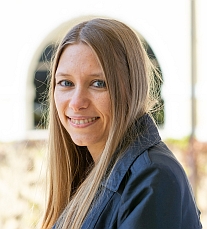
Islam in Europe:
Sociological and Anthropological Perspectives
organised by Dr. Raid Al-Daghistani (Zentrum für Islamische Theologie, Universität Münster)
Monday, 26 February 2024 | 11.00 a.m.–1.00 p.m. | HAS 1, Zentrum für Islamische Theologie, Hammer Str. 95, Münster
Registration: Dr. Raid Al-Daghistani – raid.aldaghistani@uni-muenster.de
► “Why adolescents seek security in radicalization”
Assoc. Prof. Dr. Katarina Kompan Erzar (Faculty of Theology, University of Ljubljana)
The building of identity and selfesteem is one of the most important tasks and issues of adolescence. The formation of identitiy in an individualized society as European society is thus a huge challenge for adolescents that derive from islamic culture. In my lecture I will try to show the process of identity formation, family dynamics and issues that could predict failure to inculturate and connect with nonislamic culture. We will describe some possible traumatic experiences that could lead to the radicalisation and inability to obtain and develop islamic culture in a more integrated way.

Katarina Kompan Erzar, Ph.D., is an associate professor of marital and family therapy at the Faculty of Theology of the University of Ljubljana and professor at the Faculty of Psychotherapeutic Science of the Sigmund Freud University and the Faculty of Psychology of the Sigmund Freud University in Ljubljana. In the field of social welfare, she is an independent consultant, licensed supervisor and president of the Supervisors Section at the Social Chamber of Slovenia. She is a member of the "Information and counseling programs for victims of violence" program, which is co-financed by the Ministry of Labour, Family and Social Affairs. She lectures, conducts workshops and provides supervision and training for various social welfare and educational institutions. She researches and publishes in the fields of marital and family therapy, neuroscience, developmental psychology and attachment theory. She regularly attends national and international scientific conferences and congresses as a lecturer and is the author of numerous scientific articles.
► “Digitalisation of Islam: Chances and Challenges”
Dr. Urška Jeglič (Faculty of Theology, University of Ljubljana)
In this lecture, I attempt to show the impact of digital tehnology on the spread of Salafist ideas in the Balkans and to demonstrate that Haykel's division of Salafists into active and clandestine Salafists is not entirely correct. In particular, I address the reasons for the spread of Salafism in the Balkans and explain how this affects the situation in Slovenia. Finally, I show the dual role of digital tehnology in Salafism, which is used both to disseminate a particular Islamic doctrine of faith and to search for evidence of preformed beliefs.

Urška Jeglič graduated in Theological and Religious Studies from the Faculty of Theology at the University of Ljubljana in 2015. Two years later (2017) she completed her Master's degree in Religious Studies and Ethics at the Faculty of Theology in Ljubljana. The same year she enrolled in the interdisciplinary PhD programme in Humanities and Social Sciences - Religious Studies. From October 2018 to December 2021, she was a young researcher at the Faculty of Theology in Ljubljana. In December 2020, she was elected to the rank of Assistant Professor in the field of Religious Anthropology and Religious Anthropology. In 2022, she was awarded a PhD in the field of Religious Anthropology. Her dissertation focused on the study of the religious practice of Muslims in Slovenia.

